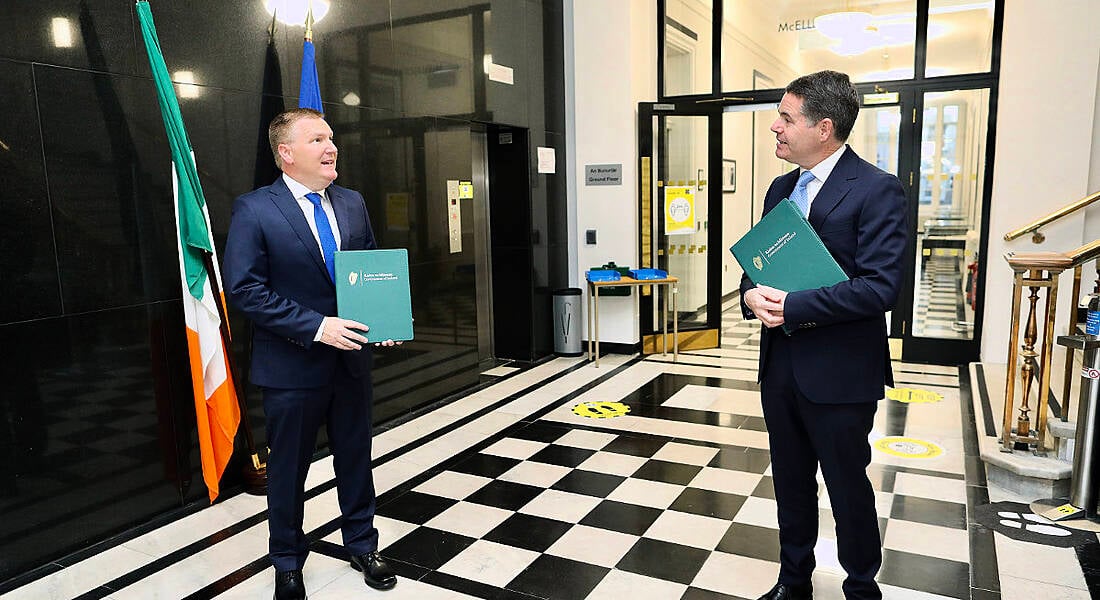The cost-of-living crisis loomed large in Budget 2023, with a host of temporary supports announced for businesses, households and students.
The Irish Government has today (27 September) announced a number of measures designed to protect workers and those in higher education as part of the 2023 Budget.
Among the measures being promised are a package of supports for families, households and businesses to help them cover energy bills amid the ongoing inflation crisis. There will also be a cost-of-living package introduced for students, as well as investment plans for education over the coming months.
Remote working and rural development are being invested in too, as part of the Government’s Our Rural Future and National Development plans. There will be a total of €390m allocated to rural and community development, building on projects for remote and hybrid regional workers such as Connected Hubs.
To complement its investment in rural development, the Government is putting aside €218m to progress the roll-out of the high-speed broadband network next year under the National Broadband Plan.
The State is promising that fibre broadband will be made available to an additional 80,000-85,000 premises in 2023. This is designed to help businesses and workers who rely on technology as part of their working lives.
Those working from home can expect a little help covering their energy bills, as the Budget is to provide a €600 electricity credit to ease the cost of energy bills this winter.
All Irish households regardless of whether their occupants work from home or not, will receive this credit. It will be delivered in instalments, with €200 due before Christmas and the remainder due in two separate batches early next year.
In order to protect jobs and dampen the effects of the energy crisis on businesses, the Government is providing up to €10,000 per business per month until spring 2023. This is part of its plan to help employers meet rising energy costs. The temporary scheme will support eligible companies, covering 40pc of the increase in their energy bills.
Criticism
However, critics have said the measures will not be enough to protect jobs. Damien McCarthy, CEO of Kerry’s HR Buddy said that the measures will only save “a small number of businesses” and a “small number of jobs”.
“The number one aim in a cost-of-living crisis should be to protect how people earn their living. For this reason, businesses needed more from this budget in order to survive and protect their workers’ jobs through this crisis. A support that only covers 40pc of an overwhelming problem is not going to save jobs. Employers will still be left with 60pc of the problem and that is only the energy costs problem. Businesses have many other rising costs outside of energy,” he said, adding that the temporary measures would “prolong the pain a while longer, but that’s about it”.
“The fact that the lower VAT rate is not being maintained beyond February is also going to be a huge blow and again put people’s jobs at risk,” McCarthy said.
Higher education supports
For those in higher education, the Budget will attempt to alleviate the pressure of the cost-of-living crisis with a range of temporary grants and supports packages. There will be a once-off €1,000 reduction in the undergraduate student contribution fee for higher education students eligible for the free fees initiative.
There will also be a once-off reduction of up to 33pc in the contribution fee for apprentices, as well as a once-off extra payment for all student maintenance grant recipients. Postgraduate students who qualify for SUSI grants will receive a once-off payment of €1,000, meaning their grant will increase from €3,500 to €4,500.
There will be a further €8m investment in the Student Assistance Fund for the 2022-2023 academic year and more once-off funding for the third-level sector to assist with rising energy costs.
The Government is investing in apprenticeships and skills training programmes in Budget 2023, also. It will provide funding for 4,800 additional apprenticeship places and 4,000 registrations. The State will provide more than 11,000 upskilling and reskilling opportunities for those sectors most impacted by Brexit and more than 2,000 Skillnet places in sectors such as sustainable finance, green-tech and climate.
10 things you need to know direct to your inbox every weekday. Sign up for the Daily Brief, Silicon Republic’s digest of essential sci-tech news.




